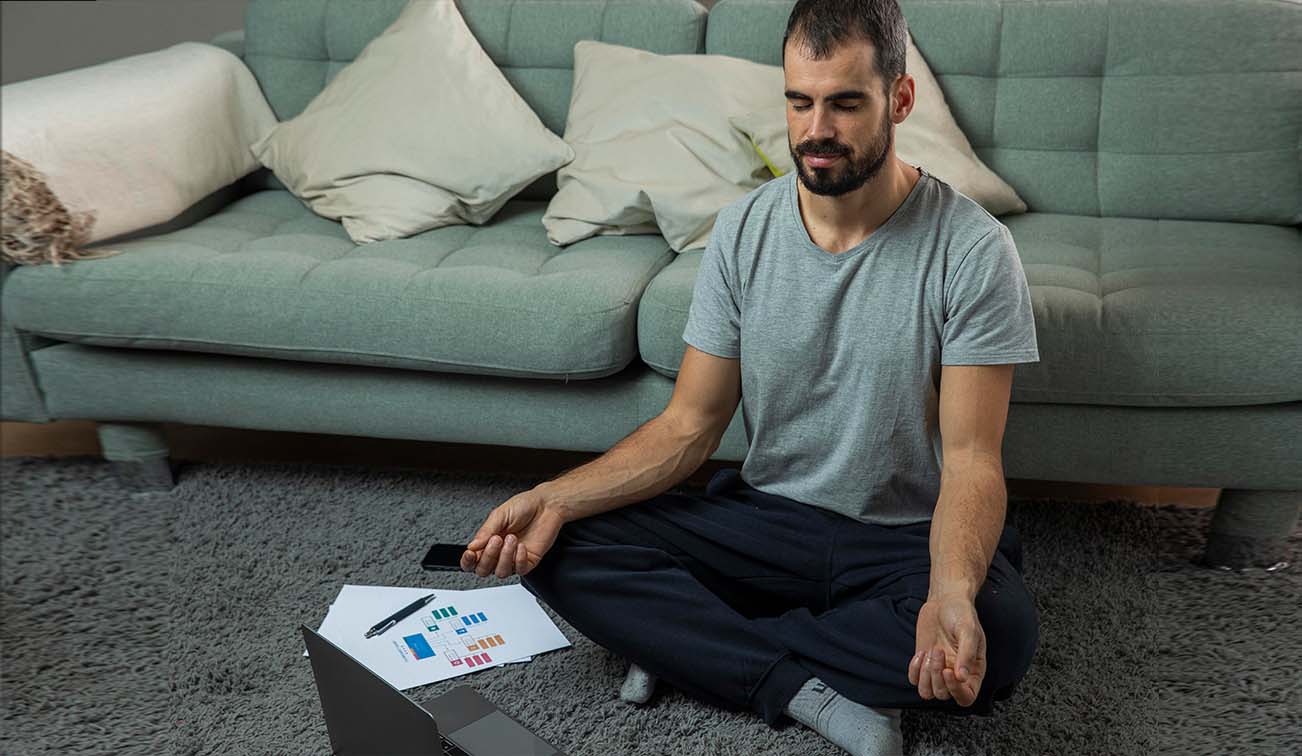Addiction recovery is a complex and challenging journey that requires dedication, support, and a holistic approach. One vital aspect of this process is self-care. Self-care refers to the deliberate practice of nurturing and tending to one’s physical, mental, and emotional well-being. It involves engaging in activities and adopting habits that promote self-nourishment, self-compassion, and personal growth.
In the context of addiction recovery, self-care plays a pivotal role in supporting individuals as they rebuild their lives, heal from the effects of addiction, and establish a solid foundation for lasting recovery. By prioritizing self-care, individuals can enhance their overall well-being, reduce the risk of relapse, and foster a healthier and more fulfilling life.
This article delves into the importance of self-care in addiction recovery and highlights the various ways in which self-care can positively impact individuals’ recovery journeys.
What is Self-care in Addiction Recovery?
The term “self-care” is used to describe the activities and routines that people in addiction recovery do on purpose to tend to their own mental, emotional, and physical well-being while they are working on beating their addiction.
It entails forming habits and behaviors that are beneficial to one’s health as a whole and support the process of recovery over the long term. Self-care is an essential component of addiction recovery because it enables individuals to keep their lives in balance, lower their levels of stress, and lay a solid groundwork for long-term sobriety.
Importance of Self-Care in Addiction Recovery:
Self-care plays a crucial role in addiction recovery. It involves taking deliberate actions to maintain and improve one’s physical, mental, and emotional well-being. By prioritizing self-care, individuals in recovery can strengthen their resilience, reduce the risk of relapse, and enhance their overall quality of life.
Here are some key reasons why self-care is important in addiction recovery:
-
Physical well-being:
Addiction can take a toll on the body, leading to various health issues. Engaging in self-care activities like exercise, balanced nutrition, and sufficient sleep helps restore physical health. Regular physical activity can improve mood, reduce stress, and boost self-esteem, promoting a healthier lifestyle.
-
Emotional well-being:
Recovery involves addressing underlying emotional issues that may have contributed to addiction. Self-care activities such as therapy, support groups, mindfulness, and meditation can help individuals process emotions, reduce anxiety and depression, and develop healthy coping mechanisms. It allows them to build emotional resilience and manage triggers effectively.
-
Stress reduction:
Stress is a common trigger for relapse. Engaging in self-care practices that alleviate stress, such as relaxation techniques, hobbies, or spending time in nature, can enhance emotional well-being and provide healthier ways to manage stress. By prioritizing stress reduction, individuals can avoid turning to substances as a coping mechanism.
-
Self-awareness and self-compassion:
Self-care encourages individuals to develop a deeper understanding of their needs, limitations, and boundaries. By practicing self-compassion, individuals can let go of self-blame, shame, and guilt associated with addiction. It promotes a positive self-image, and self-acceptance, and fosters a kinder relationship with oneself.
-
Improved relationships:
Addiction often strains relationships with loved ones. By focusing on self-care, individuals in recovery can rebuild trust, establish healthier boundaries, and cultivate meaningful connections. They can also develop effective communication skills and learn how to prioritize their well-being while maintaining healthy relationships.
-
Prevention of relapse:
Self-care is a vital component in preventing relapse. By engaging in activities that promote overall well-being, individuals create a stronger foundation for recovery. A healthy lifestyle, positive coping strategies, and effective stress management can help individuals navigate challenging situations without resorting to substances.
-
Increased self-esteem and confidence:
Addiction can erode self-esteem and self-confidence. Engaging in self-care activities that promote personal growth, learning new skills, and achieving personal goals can rebuild self-esteem and foster a sense of accomplishment. This enhanced self-worth can serve as a protective factor against relapse.
What are some steps on Self-care in Addiction recovery?
Here are some examples of self-care practices that can be beneficial in addiction recovery:
-
Engaging in regular exercise:
Physical activity not only promotes physical health but also improves mood, reduces stress, and helps manage cravings. Find an exercise routine that you enjoy, whether it’s going for a walk, practicing yoga, running, or participating in a sport.
-
Practicing mindfulness or meditation:
Mindfulness and meditation techniques can help calm the mind, increase self-awareness, and manage cravings or triggers. Consider incorporating mindfulness exercises or guided meditation into your daily routine.
-
Prioritizing healthy sleep habits:
Getting sufficient and quality sleep is vital for overall well-being and recovery. Establish a consistent sleep schedule, create a soothing bedtime routine, and ensure your sleeping environment is conducive to restful sleep.
-
Nurturing your hobbies and interests:
Engage in activities that bring you joy, whether it’s playing a musical instrument, painting, cooking, gardening, or any other hobby you enjoy. These activities provide a sense of fulfillment, distract from cravings, and promote a positive mindset.
-
Connecting with supportive individuals:
Surround yourself with a supportive network of family, friends, or a recovery community. Attend support group meetings, and therapy sessions, or engage in sober social activities where you can connect with individuals who understand your journey.
-
Taking breaks and practicing relaxation:
Set aside time for relaxation and self-care. This can involve taking breaks throughout the day, practicing deep breathing exercises, enjoying a warm bath, getting a massage, or engaging in other relaxation techniques that promote stress reduction and rejuvenation.
-
Setting and achieving personal goals:
Establish realistic goals for yourself and work towards them. These goals can be related to various aspects of your life, such as career, education, hobbies, or personal growth. Celebrating achievements along the way boosts self-esteem and motivates recovery.
-
Establishing a healthy routine:
Create a structured daily routine that includes self-care activities, regular meals, exercise, work or study time, and relaxation. Having a routine provides stability, reduces uncertainty, and promotes a sense of control over your life.
-
Seeking professional help when needed:
Recognize that seeking professional help is an important form of self-care. If you are struggling with addiction or facing challenges in recovery, don’t hesitate to reach out to an addiction treatment center, therapist, or medical professional who can provide guidance and support.
Conclusion:
Self-care in addiction recovery is a crucial component of maintaining well-being and supporting long-term sobriety. It involves intentional actions and practices that nurture physical, emotional, and mental health. By prioritizing self-care, individuals in recovery can develop healthy habits, reduce stress, and build a solid foundation for a fulfilling life free from addiction.
In addition to recovery, self-care encompasses various aspects. Physical self-care involves taking care of the body through exercise, nutritious eating, and adequate sleep. Emotional self-care focuses on nurturing emotions, practicing self-compassion, and seeking support through therapy or counseling. Mental self-care involves engaging in activities that stimulate the mind, promoting mental clarity and positive thinking.
Ultimately, self-care in addiction recovery is a personalized journey. It requires individuals to explore and discover what practices work best for them. By prioritizing self-care, individuals in recovery can cultivate resilience, maintain balance, and create a solid foundation for a fulfilling and sustainable life in sobriety.
FAQs on Self-care in Addiction Recovery:
Q1: Can self-care replace professional treatment in addiction recovery?
A: No, self-care should not replace professional treatment in addiction recovery. Self-care practices complement and enhance the effectiveness of professional treatment, therapy, and support systems. It is important to seek professional help, such as addiction counselors or therapists, to address the underlying causes of addiction and develop a comprehensive recovery plan.
Q2: How do I incorporate self-care into my daily routine?
A: Incorporating self-care into your daily routine requires intention and consistency. Start by identifying self-care activities that resonate with you and are feasible to incorporate into your schedule. Set aside dedicated time each day or week for self-care practices. Prioritize self-care as a non-negotiable part of your routine and make adjustments as needed to ensure it remains a consistent part of your life.
Q3: What if I feel guilty or selfish for prioritizing self-care?
A: It is common to experience feelings of guilt or selfishness when prioritizing self-care, especially if you are used to putting others’ needs before your own. However, it’s important to recognize that self-care is necessary for your well-being and recovery.
Taking care of yourself allows you to show up fully for others and be a positive influence in their lives. Remember that self-care is not selfish; it is an essential part of maintaining your health and being able to support others effectively.






